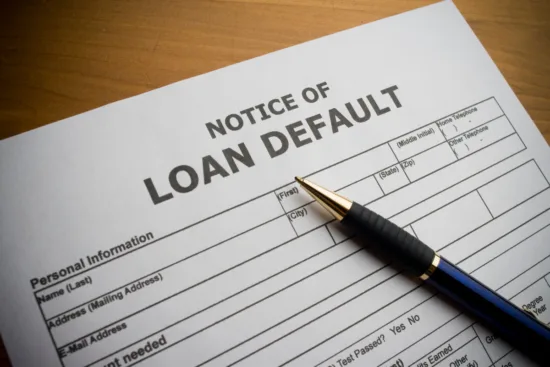Dubai’s real estate market is dynamic and constantly expanding, with Dubai Off Plan properties—those purchased before construction is completed—emerging as a popular option for investors and buyers. These investments often promise lower prices, flexible payment plans, and the opportunity to secure properties in highly sought-after developments.
But what happens if you find yourself unable to meet the financial obligations of your Dubai Off-Plan property? Whether it’s due to unforeseen circumstances, financial mismanagement, or market fluctuations, defaulting on payments can have significant legal and financial consequences.
This guide explores everything you need to know, from understanding payment plans to navigating potential outcomes and taking proactive steps to manage payment difficulties.
What Are Off-Plan Properties, and How Do Payment Plans Work?
Off-plan properties refer to properties that are sold before they are fully constructed. Buyers are drawn to these investments due to lower upfront costs, flexible installment plans, and the chance to invest early in booming developments.
Key Features of Off-Plan Payment Plans
When buying an off-plan property, developers usually offer payment plans based on construction milestones. These can vary by project but often include the following structure:
- Initial Deposit: A down payment, typically 10–20% of the property price, paid at the time of purchase.
- Installments: Scheduled payments tied to specific construction stages, e.g., 20% at completion of the foundation, 40% by the halfway point, and the remaining balance upon project handover.
- Post-Handover Payments (optional): Some developers offer flexible plans allowing buyers to pay the final balance over several years after handover.
While payment plans offer affordability, they also come with strict timelines and legal obligations. Missing a single installment could trigger legal actions and penalties.
Common Reasons for Payment Defaults in Dubai

Payment defaults on off-plan properties can result from various challenges, including economic or personal setbacks. Here are some common reasons buyers may face difficulties:
- Economic Changes: Market dips, employment layoffs, or a global financial crisis can strain buyers’ finances.
- Unrealistic Budgeting: Underestimating the long-term costs of owning property, such as maintenance fees or additional financing requirements.
- Overleveraging: Committing to multiple properties or investments without sufficient financial cushioning.
- Exchange Rate Volatility (for foreign investors): Currency fluctuations can affect affordability for buyers outside the UAE.
Legal Implications of Defaulting on Off-Plan Payments
Dubai enforces strict regulations under Dubai Law No. (13) of 2008, amended by Law No. (19) of 2017 to protect the interests of both developers and buyers. Here’s what happens when a buyer defaults on payments.
Notification and Grace Period
Once a buyer misses a payment, the developer must notify the Dubai Land Department (DLD), triggering a 30-day notice period. During this time, the buyer is given an opportunity to settle outstanding amounts. The DLD may also mediate to resolve disputes amicably.
Developer’s Next Steps (Based on Construction Progress)
The actions the developer can take depend on how much of the project is completed at the time of default.
| Construction Status | Developer’s Actions |
| Over 80% | Retain all paid amounts and demand the balance. May also auction the property via the DLD to recover dues. |
| 60–80% | Terminate the contract, retain up to 40% of paid amounts, and refund the remaining balance within 60 days. |
| Below 60% | Withdraw from the contract, retain up to 25–30% of the buyer’s payments, and refund any excess amounts. |
Potential Financial Consequences for Buyers
- Loss of Payments: Developers may retain a percentage of the buyer’s payments, proportional to the construction stage.
- Auction Sale: For severely defaulted cases, the DLD may auction the property, using proceeds to cover the buyer’s dues. Any excess amount is refunded to the buyer.
- Legal Action: Developers can pursue outstanding dues legally, possibly without court intervention, as per the terms outlined in the Sale Purchase Agreement (SPA).
How Defaulting Could Affect Future Investments
Defaulting on off-plan payments can impact an investor’s creditworthiness and real estate opportunities in Dubai.
- Credit Record: Buyers who default may be flagged by real estate companies, limiting their ability to invest in future projects.
- Developer Blacklisting: Frequent defaulters may find themselves blacklisted by developers, making it harder to negotiate or enter future agreements.
Strategies to Avoid or Manage Payment Defaults
Facing financial difficulties doesn’t necessarily mean losing your property. With proactive steps, buyers can manage the situation effectively.
1. Communicate with the Developer
- Open Dialogue: Inform the developer of your financial challenges before missing a payment. Developers may agree to restructure installments or offer payment extensions.
- Flexible Solutions: Many developers provide post-handover plans or temporary payment pauses to assist buyers.
2. Explore Resale Options
If financial difficulties persist, explore the option of reselling your property before completion. Check the SPA terms for clauses permitting resale and seek approval from the developer.
3. Seek Legal Support
For buyers unsure about their rights, consulting a lawyer specializing in Dubai property law can provide clarity and help explore viable options.
4. Evaluate Financial Support Options
Consider securing short-term financial assistance, such as personal loans or financing solutions, to cover upcoming payments.
Protecting Your Investment

Real estate is a valuable asset, and taking proactive steps to manage financial challenges is key to preserving your investment.
Key Takeaways
- Understand all financial commitments outlined in the SPA before investing.
- Notify the developer early if you foresee payment difficulties.
- Consult legal professionals and financial advisors for personalized solutions.
Recommended Next Steps
If you’re facing difficulties with your off-plan property payments or are considering investing, speak with a professional real estate advisor. Understanding your options ensures your investment strategy remains secure.

